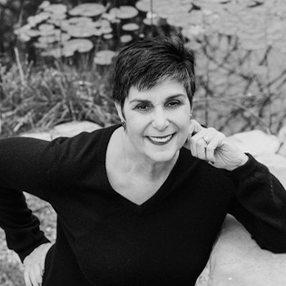Wild Horses Drink from the River of History
Hours before dark, I follow the stony path
from the parking lot to the river bank.
Along the shore I look for crushed branches and trampled grass,
the clearing where wild horses are said to appear.
Then, I hide behind a mesquite tree, hold my breath.
I want to know their secrets.
Finally the mares and foals emerge from the woods
and stand, ankle deep, among the dense reeds.
At once the entire herd bows their heads,
laps the cool water, takes the river into themselves.
If I were brave, if I’d forget
to move past the brokenness of my own family,
I’d approach these unclaimed, unnamed creatures.
I’d stroke their brown manes,
feed them sugar apples and snow peas.
We’d share one fearless story.
Now the Mustangs dig their feet under the tall grass.
I step forward, snap a few pictures,
as if the camera could capture
when my unsettled heart and theirs became one.
Overhead, the whir of helicopter blades
cuts through a questioning sky.
Suddenly there’s a thousand echoes,
galloping hooves ringing over badlands.
I turn and look back to the river
which flows on, relentlessly, carrying with it
every story of who or what has come and gone.
And the sun sets, dropping behind the mountain,
leaving a blue ridge, a dimming thread of gold.
I get into my car, head up switchbacks
that lead me to the open highway and down towards the city
where lights shimmer like the past of distant stars.
Copyright © 2022 by Lois Roma-Deeley. Originally published in Poem-a-Day on September 7, 2022, by the Academy of American Poets.
“I’ve come to love the Arizona landscape. It is, to me, as mystical as it is beautiful. For example, I’ve often observed a wild mustang herd. This poem took as its point of departure one day when I saw several of these majestic creatures drink from the river, while others rested under the cool shade of tall trees. I was not more than a few feet away from them. They seemed aware of me but quite unafraid of my presence. This moment seemed otherworldly. It became something like a path leading to the past but also stretching toward the future.”
—Lois Roma-Deeley

